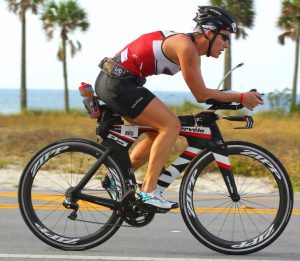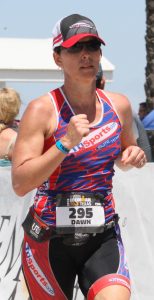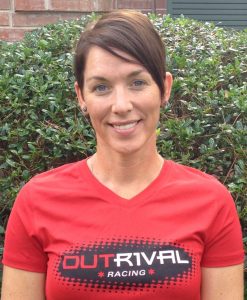Written By Dawn English, Trisports.com Elite Team Member and OutRival Racing Coach
A joy of triathlon is always having something to work on, improve, and cultivate. The constant self-assessment is appealing as triathletes are always seeking the next level. But knowing how to work on your limiting sport can get confusing when trying to manage the other two. Below are some strategies to help. Keep in mind, these should be used as part of a bigger picture plan for your training based on your goals. Improvements generally emerge incrementally, so consistency and focus is paramount.
Define the Weakness
Is XYZ sport really your limiter? Sometimes we think one sport is weak when really it’s something else, like managing intensity or race fueling. Often, I hear people say that the run is their weakness, but when observing their run training and/or run-only events, they look good. But in a race, they go too hard on the bike or don’t fuel properly, which leads to a run that doesn’t translate to the run split they are capable of producing. Another culprit may be being a decent swimmer, but not swimming enough, causing one to head into the bike overly fatigued, not allowing their bike and run skills to shine.
Review Your Technique
Have someone film you swimming, biking, or running. Get feedback on your technique, preferably by someone who knows what they are doing and works in the field. Small or big changes can lead to even bigger results. For example, correcting muscle recruitment in your pedal stroke, running stride length, or head position while swimming can immediately improve efficiency and speed. Furthermore, proper technique provides the foundation for injury prevention.
 Strengthen Your Base
Strengthen Your Base
Are you doing strength training? C’mon, you know you need to get in the gym… at least sometimes. The main goals should be to correct muscle imbalances and encourage tendon strength. Focusing on these areas will allow for better support, power, and strength in all disciplines of triathlon. For instance, strengthening your glutes can allow greater muscle recruitment in your butt when pedaling with solid technique. Greater muscle recruitment in cycling means more power in your pedal stroke and may even lead to a better run.
Do It
Let’s face it; if we are not good at something, it’s not that fun. Look at your training hours, I imagine your weakest sport is the smallest piece of the pie, make it bigger – by a lot.
Dedicate Training Blocks
Dedicating specific blocks during your training to focus on your weak sport can pay big dividends. At the beginning of your training year, take two to six weeks and make your weak sport your most frequented. The exception to this rule is if you are working on your running in an IRONMAN, this doesn’t mean run a bunch of marathons in the off season in preparation for your full distance triathlon; that is a good way to get injured. But you can do some shorter, technique-focused runs more frequently and some shorter races to provide a bump in your performance. When doing a focus block, do the other disciplines at least two times a week, even if the sessions are brief.
Stay Positive
Not being good or as good as you would like at a sport does not mean you are a bad person, a loser, or incomplete. I see many athletes that have areas of weakness and embrace them as a source of negativity, victimization, and constant excuses. Social media manifestos do not help. Stay positive, embrace where you are, work on it, and move on.
About the Author: Dawn English is a member of the Trisports.com Elite Team, a coach with OutRival Racing. She has been a triathlete since 1999, with regular podium visits as an IRONMAN Age Group Athlete, as well as a USAT All American, and juggler of family and life.


